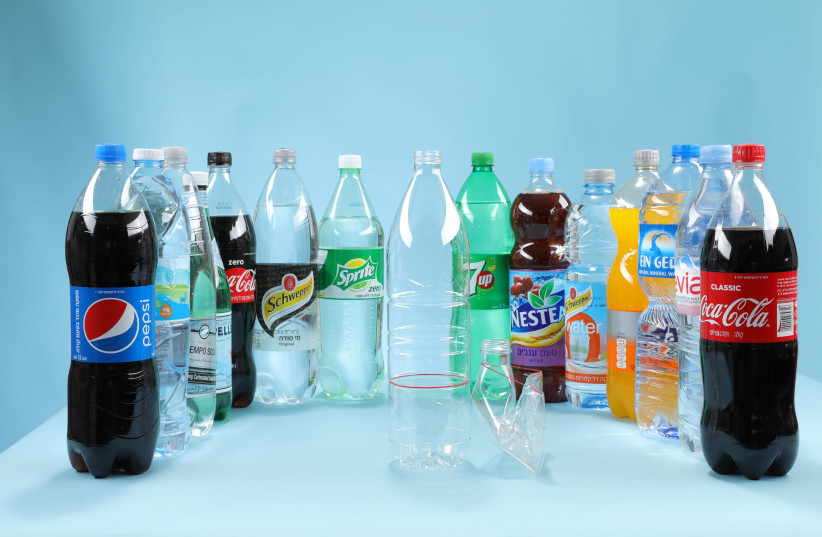Finance Minister Bezalel Smotrich instructed his new ministry on Sunday to prepare directives to cancel the tax on disposable plasticware and soft drinks, which was implemented by the former government.
The cancellation – set to take effect in the following days – is Smotrich’s first official decision as minister and was taken just hours after the conclusion of his initiation ceremony.
Both taxes were instituted by finance minister Avigdor Liberman – on plasticware in 2021 and soft drinks in 2022.
What was the original intention for the tax?
The taxes' intentions were to cut down consumption of plasticware to reduce pollution, as well as cut down sugar consumption – especially in low-income families – to reduce diabetes and other diseases.

Haredi politicians accused Liberman of intentionally targeting the ultra-Orthodox society and claimed there were better ways to affect consumer behavior.
United Torah Judaism MK and Knesset Finance Committee Chairman Moshe Gafni expressed his satisfaction, saying the taxes were intended “first and foremost to harm the haredi public.”
UTJ MK Uri Maklev said the taxes were not intended to assist the public but were a bad and unprofessional decision intended to harm the public.
“Now that the tax has been canceled, we will act via outreach and education to safeguard the environment and consume healthy beverages,” he said.
Former environmental protection minister and current Meretz MK Tamar Zandberg criticized the new finance minister.
“The new government is allowing petty politics to destroy the environment and health. Instead of moving forward, this decision brings us back light years. Other than a poke in the eye, canceling the tax will contribute only to pollution and disease,” Zandberg said. She called on new Environmental Protection Minister Idit Silman to “decisively oppose this harmful move.”
The Israel Union for Environmental Defense (Adam, Teva V’Din) said canceling the tax on plasticware was nothing less than a scandal.
“More severe is the fact that this is what the new finance minister chooses to do on his first day in office – harm public health and turn Israel into one big dump. Already today there is no space in Israel for waste disposal, and canceling the tax encourages the public to continue buying them while creating health and environmental pollution,” the union said.
What are some of the reactions?
The Association of Public Health Physicians denounced the decision as well.
“The decision of the incoming finance minister is an unfortunate, regrettable and blind decision made without discussion or consultation with health experts,” said the association, which is chaired by Prof. Hagai Levine of the Hebrew University-Hadassah Braun School of Public Health and Community Medicine.
Sugary drinks cause diabetes. In many patients, this leads to kidney dialysis, limb amputations, serious illnesses and death: “Therefore it is justified to tax them, as is accepted in the world. The taxation tool is not intended to burden the population but, on the contrary, to help it become healthier,” the association declared. “Not for nothing is the Torah likened to ‘living water’ and not to harmful drinks.... The meaning of the decision is that more Israelis will suffer from blindness, stroke, kidney failure and cardiac events due to diabetes and obesity.”
The haredi sector is a consumer of a large amount of sweetened and even artificially colored soft drinks like cola; aisles full of the bottles can be seen in any supermarket that caters to the ultra-Orthodox. The reason is that the drinks are cheap, and bring “happiness” on Shabbat and holidays and are a reward for children.
“The decision was made without examining the consequences for the public and without discussion with the professionals in the Finance and Health ministries. A sane and responsible finance minister would have made sure to convene a meeting with the professional level in the Finance and Health ministries to discuss the issue before making a decision that will harm the entire population of Israel,” the association said.
Judy Siegel-Itzkovich contributed to this report.
